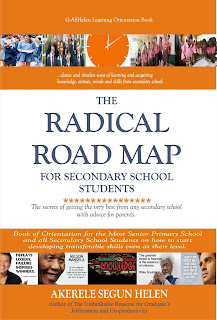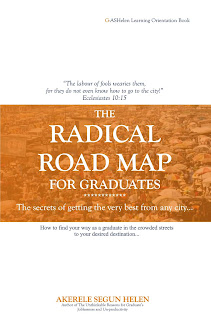The Radical Road Map for Secondary School Students
Just as primary education forms the base material for secondary education so also is secondary education forms the base material for the intellectual quality of intakes into the tertiary institution. A fault in knowledge acquisition and skills development at secondary level will definitely affect the quality of tertiary education which often results in 'unemployability' of graduates. To escape this disastrous ending, Akerele Segun Helen, as a teaching-learning expert, in this book, shows students how secondary school is organized to help students, and how they, as students at that level, should position themselves to acquire knowledge and develop transferable and soft skills that will enable them achieve the very best in tertiary institution.
The Radical Road Map for Undergraduate
Using illustrations from his own life stories and that of his friends' with references to some world and organizational leaders in different human endeavours, Akerele Segun Helen understandably explains how higher institution, as a training-for-services institution, positions itself in order to help students (undergraduates) acquire knowledge beyond classroom teaching and to develop minds, virtues and transferable skills through assignments, day-to-day school works and ordinary campus activities.
This is the book that can show you how to learn gainfully and develop transferable and soft skills on campus as an undergraduate to become sought after as a graduate.
The Radical Road Map for Graduates
Confronting and solving the problems and challenges that come with graduation in the present society has become a painful process for most graduates which has also led a good number of these certificated young people astray. Drawing heavily on his own professional and personal experiences, Akerele Segun Helen, the Founder and Chief Coordinator of G-ASHelen Orientation Services, provides ways through which fresh graduates can practically find their desired destinations in this overcrowded world that's doing everything possible to make them nothing.
With this book, you can't miss your way to breakthrough.


